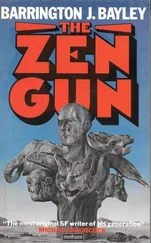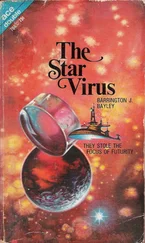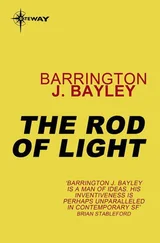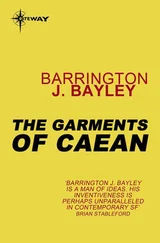A peculiarity of the Montgomery Cloudbank is that it excludes stars anywhere within its compass. Nobody knows why. The consequence is that the interior of the cloud is not heated up, like most banks such as the Coalsack. With any luck, we might find that deep within the Cloudbank there was no thermal activity at all.
We stood at the viewplate and studied the Cloudbank from close up. Jack regarded it dourly. Juker’s eyes gleamed. “Promising!” he exclaimed. “It looks promising!”
We set up the mass detector, and after locating the pinpoint concentration of matter within the cloud, plunged right in.
At once we were in the dark, nosing through unrelieved blackness.
Juker watched the ship’s sensors anxiously. “The temperature’s going down,” he announced.
“Yeah, well, what do you expect?” Jack growled.
I should explain that after a month in transit, Jack and I were both apt to be on edge. On this occasion I was in uncommonly good humour, which probably made Jack even more irritable.
Juker frowned as the record dropped even lower. “We might have some difficulties to contend with,” he warned. “We took precautions, I know, but—well, quite frankly at sub-zero temperatures materials just don’t behave the same.”
“I know that,” Jack said. “You’re not telling us the hull is going to crumble away, are you? It’s painted with atombond.”
“That will help, admittedly. Well, we shall see. We may have to keep feeding energy into the plating to maintain its strength.”
Jack grunted, glanced at me and chuckled. “If anything happens I’ll just go to bed and pull the covers over me.”
“As for me,” I said when Juker had left the room, “if it gets cold I’ll just think of getting back and cuddling up to Janet.”
He gave me a funny look, as if the joke wasn’t appreciated. “I knew you’d say that. You’ve done nothing but talk of that girl all the trip.”
“Well, why not?” I said defensively. “You’re just jealous.” “Hmm. It’s not that. It seems to be preying on your mind, that’s all. Don’t let yourself get neurotic over it.”
I was mildly surprised, but didn’t answer. Jack sat down and started fiddling aimlessly with the knobs on the control board. He talked on for a bit, in the desultory, strained way he sometimes has, but it became more and more vague and I didn’t really listen.
Professor Juker spent most of his time monitoring the skin sensors. They didn’t all record hull conditions; many of them were long-range scanners, which he pointed in all directions. He was anxious to know just how much radiation energy did trickle through that blanket of dust and gas.
One day he came triumphantly into the control room. “I’ve been watching the sternwards detector for the past hour,” he said. “The reception in that direction is now nil!”
Nil. Along with all the other directions. We were completely cut off from the outside universe. There was a region of hundreds of light-years completely lacking in energy.
It was still some days after that announcement that we came upon Celenthenis.
Professor Juker was able to say with certainty that not one photon of energy ever touched upon that world, or ever had done so in apprehendable history, until our arrival. We cast our laser beams upon it, sweeping its dead surface from hundreds of miles away. Soon we were able to make our second assertion: not only was it out of reach of external energy, for some reason it had no internal heat of its own.
There was not one calorie, not one quantum of heat in the whole planet.
Here it was, locked away in itself, no warmth, no life, no movement. Just timeless death.
“This is it, lads!” Professor Juker said, slapping us both on the back. “The Planet of No Temperature! The matter down there has mighty different properties from the stuff we’re used to, I assure you. It’s a magic place.”
Warily, we set ourselves down on the surface.
It was as Juker had predicted: we needed extra safeguards to keep our ship in one piece. Our first hour, spent in installing a micro-heating system to all parts of the ship, was a tense period.
At last the ordeal was over and we were safe. Gathering in the control room, we turned the external television scanners to view the terrain.
Searchlights atop the ship cast a circle of illumination a hundred yards across. Beyond that we could see nothing, but only sense the dark and the cold stretching away in a vacuum.
Inside the circle the ground was fairly level, but broken and uneven, forming slabs and runs which seemed to be leading away into their own mysteries. I saw that at one point near the perimeter it broke into a shallow crevice. Add to this its colour: a dull, dark green.
And the sky? We just couldn’t see anything above. Remember that in the ordinary sense of the word Celenthenis has no sky, in that nothing reaches it from outside, so that for practical purposes nothing exists for it above its own surface.
Summing up my impressions of it, I can only say that it looked sullen and suicidal.
Needless to say, none of us took time to gawp, or to be poetical about it, or even excited, because now we had to get down to a serious job of work, which we did without delay or question.
Juker was happy to take charge of most of the experiments, and I must say he made a more thorough job of it than we would have done. That’s how it should be, of course, he being a professor, but I couldn’t help reflecting how many go-getters had received only a fragment of what a planet’s actually worth through having an inadequate knowledge of some field or other. Watching the professor at work, I got an insight into a real scientific mind, instead of just hit-and-miss merchants like us.
His enthusiasm was enormous. Piece by piece we manhandled equipment outside, bringing it back inside when it looked like being damaged by the lack of temperature. Eventually we rigged up minimal heaters for all of it, but until then Jack and I had some pretty heavy work to do.
Then we just helped Juker in the dozens of experiments he had planned. He had brought specimens of every conceivable material with him, and was investigating their properties in null-heat conditions. We had to leave the samples outside for a while before absolutely all their heat leaked away, but when we began testing Juker became more and more pleased.
“Boys,” he said, “this is where the study of matter should begin. Up to now its nature has been obscured by always being in a state of heat. For the first time I have an opportunity to study it in a state of rest.”
It was soon after this that he discharged the million volts into the planet. For some hours he built up an accumulation from the ship’s generator, then let it all rip in a millisecond. Hours later, it hadn’t dropped one volt. The planet was full of electricity, zipping round in a world where all materials were super-conductive and there was zero resistance.
Jack’s imagination was caught by it. “What do you think of that!” he said. “It’ll still be here in a million years!”
Personally, I began to look forward to the hour when we would take off. You do begin to feel the deadness of the place, as the guest at my party said. If you think the Moon is lifeless, you should go to Celenthenis.
By the third day I was making definite plans for the future. “What are you going to do when Janet and I are married?” I asked Jack once when the professor was in the storeroom. “You can stay with us if you like. We’ll probably buy a big house, what with the money we’ll make on this trip and all.”
He made evasive gestures with his hands. “Maybe. You never can tell how things will work out, though.”
“What do you mean by that?” I asked, watching him closely.
Читать дальше












